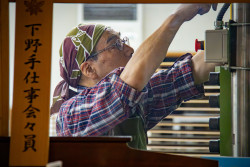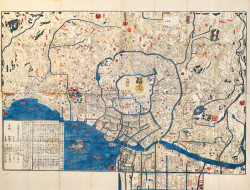
January 21, 2010
Foster Children in Japan
Local and international groups meet in Tokyo to confront a national crisis
By Metropolis
Originally published on metropolis.co.jp on January 2010

Illustration by Enrique Balducci
In most places around the world, the definition of family has broadened dramatically over the last few decades. With increasingly complex arrangements of in-laws, step-relatives, foster families and adoptive families, our understanding of the bonds that hold people together has become correspondingly deeper.
Yet here in Japan, where so much of modern life is still based on the patriarchal ie system, “family” is generally restricted to the traditional ties of blood and marriage. For those households that fall outside of the norm, life can be difficult indeed. Recently, a coalition of organizations has been seeking to reform current policies, in part by heeding the voices of those most affected: children in institutional care.
Over the course of a weekend last month, an array of such groups held a symposium in Meguro to discuss ways they can make a difference. The event was co-organized by the Anne Funds Project, a Tokyo-based NPO that promotes foster care and helps foster kids become more self-reliant, and the Orange Ribbon Campaign, a movement devoted to preventing child abuse. The two-day gathering featured a roundtable discussion that included social workers, children in foster care, and other adults who had come out of institutional care. While each speaker offered a distinct perspective, a few themes cropped up again and again.
One of these is a lack of choice for people under the care of the state. In Japan, the overwhelming majority of kids without families to look after them are placed in government-run facilities. In 2007, 35,925 such children were institutionalized, while only 3,633 were placed with foster families. Under Japanese law, people in state care have very little say in where they are placed. The wishes of the biological parents—even in cases where there has been abuse—tend to carry more weight than the child’s, and the final decision is often made by a judge who may not have any experience in family law or social work.
For foster families, meanwhile, the biggest issue is an absence of support. They often face resistance and a lack of understanding from schools, medical institutions, neighbors, friends—even their own families. Without well-established government programs or local support groups to help them, they end up feeling isolated and lost.
One thing everyone seemed to agree on was that institutional homes, even “family-style” ones, were not serving the interests of children or society. Corporal punishment is still allowed in Japan, large institutions with more than 50 kids remain common, and even those social workers who want to create a warm and affectionate environment feel constricted. As one of them put it, “How do you express emotion in an institution where a hug could be considered sexual harassment?”
Another issue addressed at the convention was the lack of after-care provisions in Japanese law. When institutionalized children legally become adults, they often end up completely on their own, without the money or means to support themselves. Anyone who has ever tried to rent an apartment without a proper koseki family registry and Japanese guarantor will know what kinds of difficulties this presents.
The highlight of the convention was the presentation by keynote speakers Emmanuel Sherwin and Stephen Ucembe, who are social workers with the International Foster Care Organization (IFCO). Both men themselves are veterans of child-care facilities in their home countries of Ireland and Kenya, respectively.
Sherwin spoke on the importance of empowering children to make changes in their own lives. Although he warned that meaningful change doesn’t happen in one day, he pointed to Irish laws enacted in part due to his advocacy efforts, including the formation of a union for children in care, and guaranteed access to university for all institutionalized kids. Ucembe focused on the importance of love and how a child’s treatment in care can create repeating patterns of neglect and abuse.
“When I was a child, I don’t remember ever getting a hug,” he says. “How do you love if you’ve never been loved? How do you bring up your own family if you’ve never been brought up in one?”
Those are questions that Japan’s government will have to wrestle with. But more importantly, they are questions that all of us in Japan should think about, because without accommodating foster parents, without understanding neighbors, and without a willingness to accept non-traditional families, even the best government initiatives are bound to fail.
To find out more about the Anne Funds Project, see http://members.jcom.home.ne.jp/ankikin/new/english1.html (English & Japanese). For more about the Orange Ribbon Campaign, see www.orangeribbon.jp (Japanese). Details about the IFCO are available at www.ifco.info







